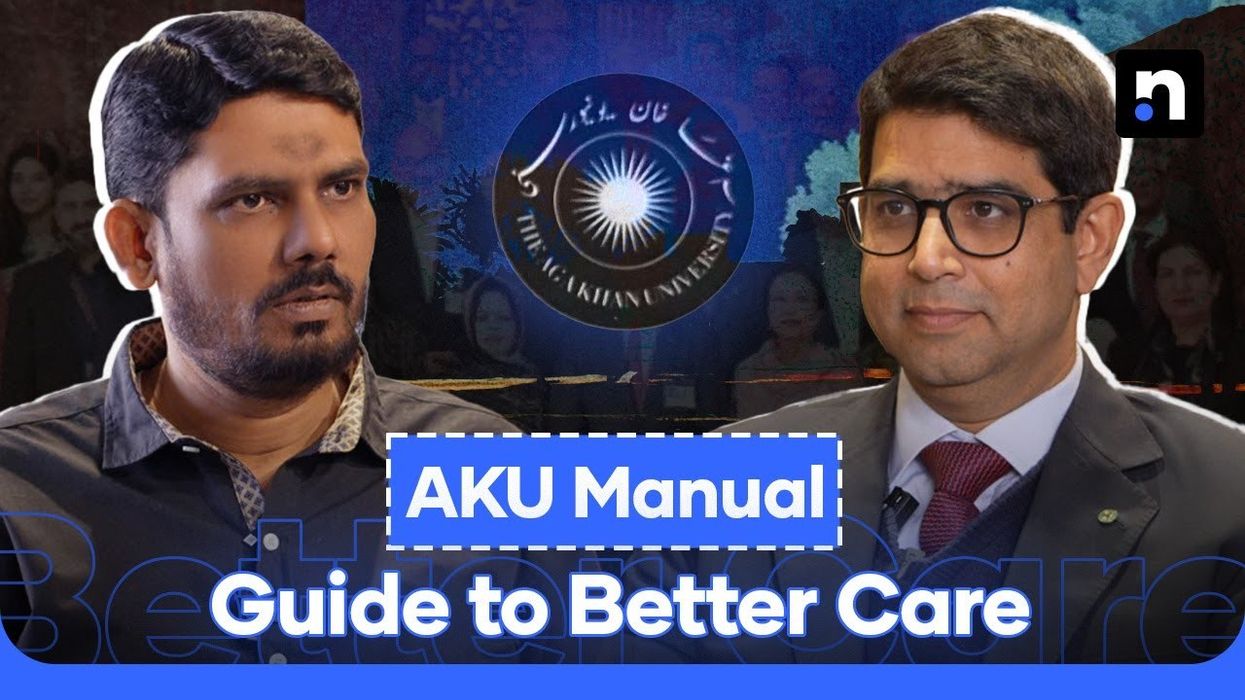New clinical practice guidelines aim to transform Pakistan’s healthcare
AKU manual is expected to enhance patient outcomes, reduce treatment costs, improve efficiency of healthcare system
Muhammad Wasi Qureshi
Senior Producer, Karachi Desk
Muhammad Wasi is a seasoned journalist with 16 years of experience in reporting and production. He began his career at Geo News in 2007, later joining Channel 24 in 2015, and then Dunya News. Over the years, he has produced various impactful programs across these major networks. Currently, he serves as a Senior Producer at Nukta Pakistan, continuing his dedication to storytelling and in-depth journalism.
Pakistan’s healthcare system, long criticized for inadequate facilities and inconsistent care quality, is on the verge of a transformative shift with the launch of the AKU Manual of Clinical Practice Guidelines.
Developed by the Aga Khan University (AKU) Medical College, this comprehensive manual addresses 140 diseases and aims to standardize medical practices across the country, offering a significant boost to healthcare quality and accessibility.
Prime Minister Shehbaz Sharif attended the launch ceremony on Wednesday held at the Aga Khan University.
Praising the initiative, the prime minister described the manual as a “remarkable chapter in healthcare reforms” and commended AKU’s invaluable contributions to public welfare in Pakistan.
“The role of Aga Khan University in the fields of health and education is commendable,” he said.
The AKU manual, inspired by the success of the COVID-19 national treatment guidelines, seeks to bridge these gaps by providing healthcare professionals with evidence-based, standardized protocols for managing a wide range of medical conditions.
The manual is expected to enhance patient outcomes, reduce treatment costs, and improve the overall efficiency of the healthcare system.
Necessity for a unified approach
Speaking to Nukta, Dr. Adil Hussain Haider, dean of AKU Medical College, said, “The success of COVID-19 guidelines highlighted the importance of standardized care, inspiring us to create similar guidelines for other diseases.”
The development of the manual involved 150 AKU doctors and faculty members. These experts received specialized training from Grading of Recommendations, Assessment, Development, and Evaluation (GRADE) organization in the United States. This training equipped them to develop evidence-based guidelines tailored to Pakistan’s unique healthcare context.
To ensure national relevance, the project collaborated with a National Advisory Group comprising 20 to 25 senior doctors from across Pakistan. Esteemed figures such as Dr. Khalid Gondal, vice-chancellor of King Edward Medical College, and Dr. Faisal Sultan, CEO of Shaukat Khanum Memorial Cancer Hospital, played pivotal roles in reviewing and refining the guidelines.
The manual specifically addresses the country’s pressing health challenges, including diabetes, hypertension, cardiac diseases, and renal disorders.
Reduce healthcare cost, increase survival rates
Dr. Haider noted that this effort is about more than just standardization. “By reducing unnecessary variations in treatment practices, these guidelines can improve patient outcomes, reduce healthcare costs, and enhance overall efficiency in the system,” he said.
Developing the guidelines required significant dedication from senior doctors, whose workload was already substantial. To support them, AKU hired fresh medical graduates to assist with research efforts. Financial support from alumni donors, including Dr. Azam Kundi and the AKU Medical College Class of 1998, was instrumental in funding the initiative.
Reflecting on the collective effort, Dr. Haider recited a verse by Majrooh Sultanpuri: “Main akela hi chala tha janib-e-manzil magar, log saath aate gaye aur karwaan banta gaya.” (“I started alone on the journey to my destination, but others joined, and a caravan was formed.”) This sentiment captures the spirit of collaboration that brought the project to fruition.
Standardized treatment guidelines have the potential to significantly improve healthcare outcomes. Dr. Haider highlights that such guidelines could increase survival rates by 30-35%.
The manual is designed to be accessible to as many healthcare providers as possible. It is freely available in PDF format on the official website www.guidelines.aku.edu and through an Android application, with an iOS version in development. For those who prefer physical copies, the manual is published by Paramount in a three-book set priced at PKR 5,085.











Comments
See what people are discussing